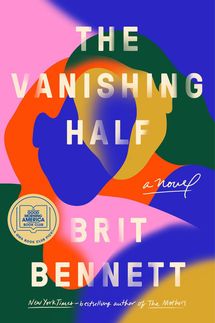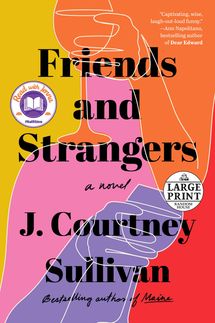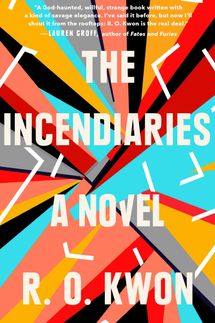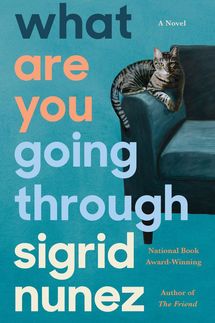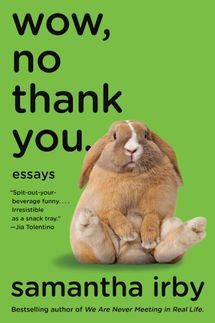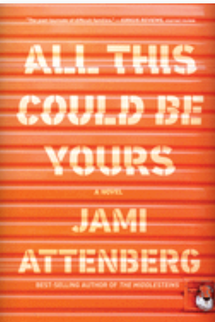
Sometimes what you’re reading just sucks. And sometimes, you’re the one who wrote it. What does it feel like to come to that realization, and what do you do next? Below, eight writers elaborate on what it’s like for them to abandon a writing project.
Rachel Khong
I have to honestly say that … I think I’ve blocked them out. I can’t tell you specifically what projects they were. Because my subconscious has just squashed them. But yeah, so many things. I feel like most of what I wrote during my three-year MFA program is just completely horrible and will never see the light of day. There are stories I’m writing now that probably nobody will ever want. Even the book that I’m working on, on most days I think it’s something. But on some days I worry that I’ve just written a lot of crap.
The real thing is, I’ve already deleted probably like 50,000 words of this — I was just writing in order to get closer to the actual story. If you wanted to be the most efficient writer possible, you definitely wouldn’t work the way that I’m working. But to me it’s almost like I don’t know how to write any other way. I think I have to just write a lot in order to eventually figure out what I’m trying to say.
Stephanie Danler
I graduated from undergrad with what I thought was a novel and thought that I would finish when I moved to New York at 22 years old and put it in a drawer and gradually realized how mediocre it was. And then I also worked — in between Sweetbitter and Stray — for a year and a half on a novel that just didn’t work. I researched it, and I traveled and studied and I tried to push it through, and it was very dead the whole time. The project just had no electricity to it.
When the writing feels dead, I know the project is over. When it doesn’t feel urgent or authentic anymore. I just published a memoir, but before that, I had only written fiction. Starting in high school, I wrote short stories and I think there is a way of writing fiction that has authenticity and risk and sincerity, and then there is some fiction that I write that feels made up. And I can feel that I’m making it up and I’m straining to make it real and I generally give up those projects.
Brit Bennett
I wrote a few drafts of novels before The Mothers that will never see the light of day, thank God. I’ve written essays that I’ve showed to friends and then have decided that I didn’t want anyone else to see. Sometimes, I’ve done projects that haven’t really paid out in research or materials or in a professional way. But, for me, I think what’s always useful is just the practice of doing it — the practice of trying something. You’re always learning something from it even if it totally fails.
For me, I stop if it doesn’t bring me joy or if I’m not excited to work on it or if I’m not thinking about it a lot. It’s one thing if I reach a certain point in the draft and I’m like, This is as far as I can go now and need to step away from it and come back later. That’s a really different feeling than when you’re just like, I hate this. I don’t feel like it’s going anywhere productive. To me — and I don’t mean to sound so high in the sky — I think that joy is such an important thing. If it makes you miserable every day, then why do it? Even if the drafts are bad, if I’m enjoying trying to figure it out and develop the characters and figure out the story and make it a little bit better, that’s something that makes me happy and makes me want to sit down at a desk.
To be fair, I’m saying this with the context of having the option to walk away. Sometimes, you sign a contract to do something or you owe somebody something and those are the cases I think are really hard. But if you have the freedom to walk away from something and you’re not enjoying working on it, then, yeah, I think that’s not worth your time. If you enjoyed it and it fails, you still enjoyed it. But if you hate it, even if it’s successful, you’ll still look back on all the time you spent dreading working on that thing.
J. Courtney Sullivan
The one that really stands out is: My book Saints for All Occasions … I just struggled so much with that book in a way I didn’t with any of my others. I spent a long time writing about 400 pages, and I thought that was the first half of the book. I had two writer friends, Helen Ellis and Ann Napolitano, who were so generous in telling me, very kindly, that it sucked.
I really appreciated it, and still appreciate it now so much, because they are part of a writers’ group and they’ve been workshopping each other’s work for 20 years or so — they know how to deliver bad news in a way that isn’t totally gutting. But they read the 400 pages, and one of them just said: There is no way I can read another 400 pages of this. You know, like, this can’t be half of your book.
So instead of thinking about it and giving myself a few days or whatever, I just tried to plunge back in and fix it. Then I spent maybe another six months going down another wrong path with it. And I realized that, and now I’ve been telling my students this: I think your readers can always help you identify where the problems are, but it is usually going to be your job to figure out the solution to the problems. So especially if you have multiple people telling you that something doesn’t work, you know, you really probably should listen to that. But oftentimes they may not know exactly how you’re supposed to fix it. That’s your job.
R.O. Kwon
With The Incendiaries, at the end of two years, I just threw away the 20 pages I’d been reworking every day for two years, and I pretty much started all over again. I had the same character names and they were roughly in the same relation to one another — the three central characters as they ended up being — but that was it. And it felt really, brutally hard to throw that all away, but there was such a relief too. It felt awful, but then it felt really good.
Sigrid Nunez
Sometimes, you do have to fail at the first ten drafts of a story to get to the place you want to be, and you would not have reached that place without those draft failures. So you cannot think of them as true failures, because they were the steps you had to take to get where you are.
If something’s not working out, though, I will often lose interest in it. It’s not engaging me anymore because it’s just not working. But you have to learn not to give up too easily. It might just be that you have to get over some humps and once you’re over them you’ll be able to go on. But if you’ve spent a significant amount of time on a piece of writing and it doesn’t seem to be working, then at a certain point you have to realize that you are on the wrong track and you either have to abandon it, at least for the moment, or perhaps radically change it somehow and see if that will do it.
Samantha Irby
I do not push myself ever. It’s been an effective strategy so far. I’m the kind of person that if I force myself to write something that doesn’t flow — I mean, usually I just can’t. For this most recent book, I have some essays I’ve started and I couldn’t figure out how to do. Usually I know the ending first and I write to an end. I had a couple of essays that I really thought could be funny or good, and I just couldn’t figure out how to structure them. So I just stopped, because if I push myself to finish something and I hate it — I hate the good stuff, like the things that are funny and make me laugh. I cringe reading my own stuff, even when it’s good. I can’t imagine a thing I hate that I forced myself to do being out in the world and having to talk to people about it.
If it’s not good or I’m reading it and I can’t figure out how to fix it, or if I’ve sent it to someone I trust to help me get through it, and they can’t — I will abandon ship. Even if it’s something I really want to write, if it doesn’t come easy, I just immediately let it go before I get too attached.
We don’t talk enough about the freedom that comes along with letting something go. I mean, if it’s your thesis and you invested hundreds of thousands of dollars in it, maybe don’t just drop that. But also if you would feel happy dropping that, then drop it. Life is so hard and bad. Forcing yourself to do a thing that you hate … it’s not for you, right? Because if you’re making something that’s for you and you like it, then you probably won’t want to abandon it.
Jami Attenberg
I’ve taken six months to write a book and then I throw it away. I don’t really recommend it as a way to make a living, but I write fast so at least there’s that. If I write something that I don’t like, then I know I can always throw it away. And, hopefully, I’ve learned something. I’ve tried to write ghost stories. I have two-and-a-half that I’ve thrown away. I’m just not very good at it. I want to be better at it, but, usually, I’m working out something — like there’s a character in it that I’m getting to know better and I’m just sort of putting them through their paces in a different scenario. So I’ve definitely thrown things away. I think there was a time in my life where I thought everything was going to be published, and I know better now.
I’ve also walked away from essays where I’ve written them and not liked them. I’ve gone so far as to send them into an editor and then just say, “I can’t, I just can’t do it.” It’s just not good for whatever reason. I think that is a really important lesson. Not everything needs to be published.
Interviews by Kelly Conaboy, Gretty Garcia, Amanda Arnold, Sangeeta Singh-Kurtz, and Claire Lampen.
These interviews have been lightly edited and condensed for clarity.
If you buy something through our links, New York may earn an affiliate commission.


